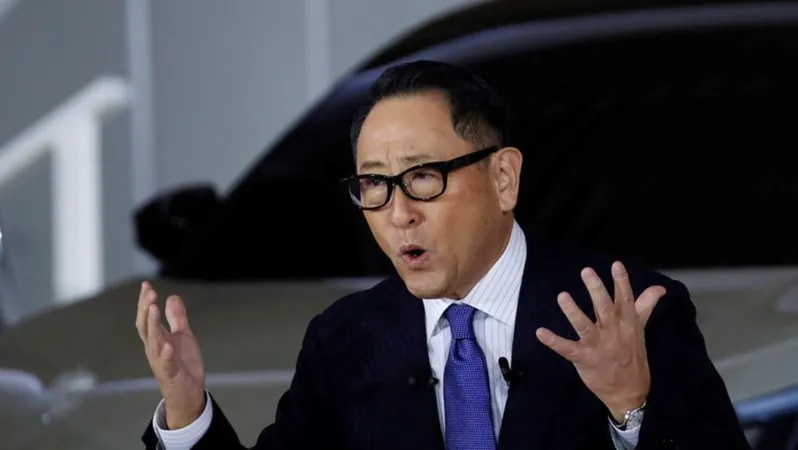
High Court Cracks Down on 'Silent' Directors: New Sentencing Guidelines Lead to Prison Time!
2025-05-05
Author: Arjun
In a landmark ruling, Singapore's High Court has taken aim at 'silent' company directors who profit by deliberately ignoring their responsibilities. A new sentencing framework now mandates imprisonment as the default penalty for these offenders, flipping the script on leniency in corporate governance.
In a recent case, Chief Justice Sundaresh Menon, Justice Tay Yong Kwang, and Justice Vincent Hoong imposed a harsh 10-month prison sentence on director Zheng Jia, overturning a meager S$8,500 (around US$6,600) fine, after finding that his actions were not just negligent but willfully neglectful.
Zheng, a chartered accountant by trade, incorporated a staggering 384 companies, primarily assisting Chinese clients wishing to do business in Singapore. His pitch? For an annual fee ranging between S$1,000 and S$1,400, he would act as a nominal local director, opening bank accounts while turning a blind eye to the companies' actual workings.
The scale of Zheng's operation was alarming; to manage the influx of clients, he enlisted help from Er Beng Hwa, who served as a nominee director for an additional 186 companies. Together, they inadvertently facilitated a massive scam, redirecting over US$2.4 million from four foreign victims through their accounts.
When the dust settled, Zheng pled guilty to failing to uphold his director duties and was barred from any directorial role for five years. The judges emphasized that his lack of engagement was not a simple error but a calculated choice to disregard his responsibilities, ultimately endangering Singapore's financial integrity.
The ruling brought to light the vast chasm between negligent directors and those who intentionally shirk their duties. The justices argued that 'silent' directors like Zheng pose significant risks not just to their companies, but to the broader financial ecosystem in Singapore.
The judges further outlined a revised sentencing scheme, listing several factors for judges to consider, including the extent of the director’s due diligence, efforts to monitor company transactions, and the harm caused by their negligence. Depending on the severity of the offenses, directors could face anywhere from four months to over a year in prison.
This move signals a serious crackdown on corporate misconduct in Singapore, with the High Court positioning itself firmly against the culture of complacent overseeing that has become too common in the business world. Silence is no longer golden in Singapore’s corporate landscape.


 Brasil (PT)
Brasil (PT)
 Canada (EN)
Canada (EN)
 Chile (ES)
Chile (ES)
 Česko (CS)
Česko (CS)
 대한민국 (KO)
대한민국 (KO)
 España (ES)
España (ES)
 France (FR)
France (FR)
 Hong Kong (EN)
Hong Kong (EN)
 Italia (IT)
Italia (IT)
 日本 (JA)
日本 (JA)
 Magyarország (HU)
Magyarország (HU)
 Norge (NO)
Norge (NO)
 Polska (PL)
Polska (PL)
 Schweiz (DE)
Schweiz (DE)
 Singapore (EN)
Singapore (EN)
 Sverige (SV)
Sverige (SV)
 Suomi (FI)
Suomi (FI)
 Türkiye (TR)
Türkiye (TR)
 الإمارات العربية المتحدة (AR)
الإمارات العربية المتحدة (AR)